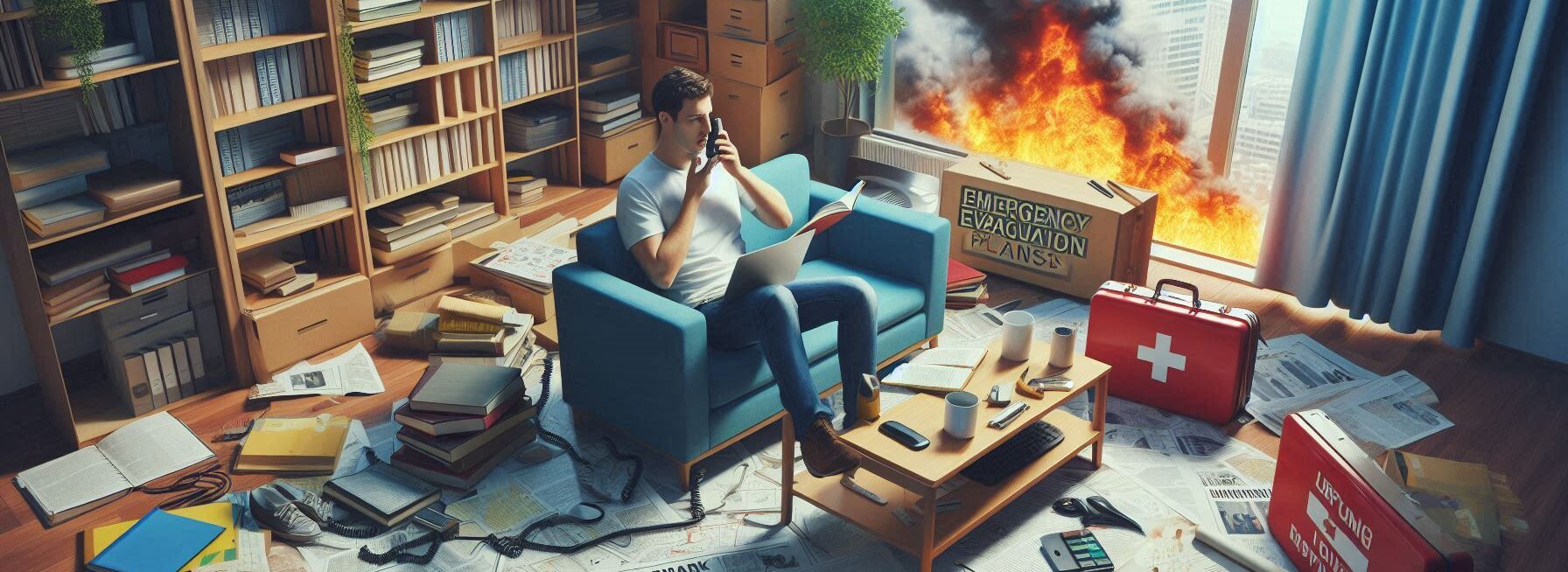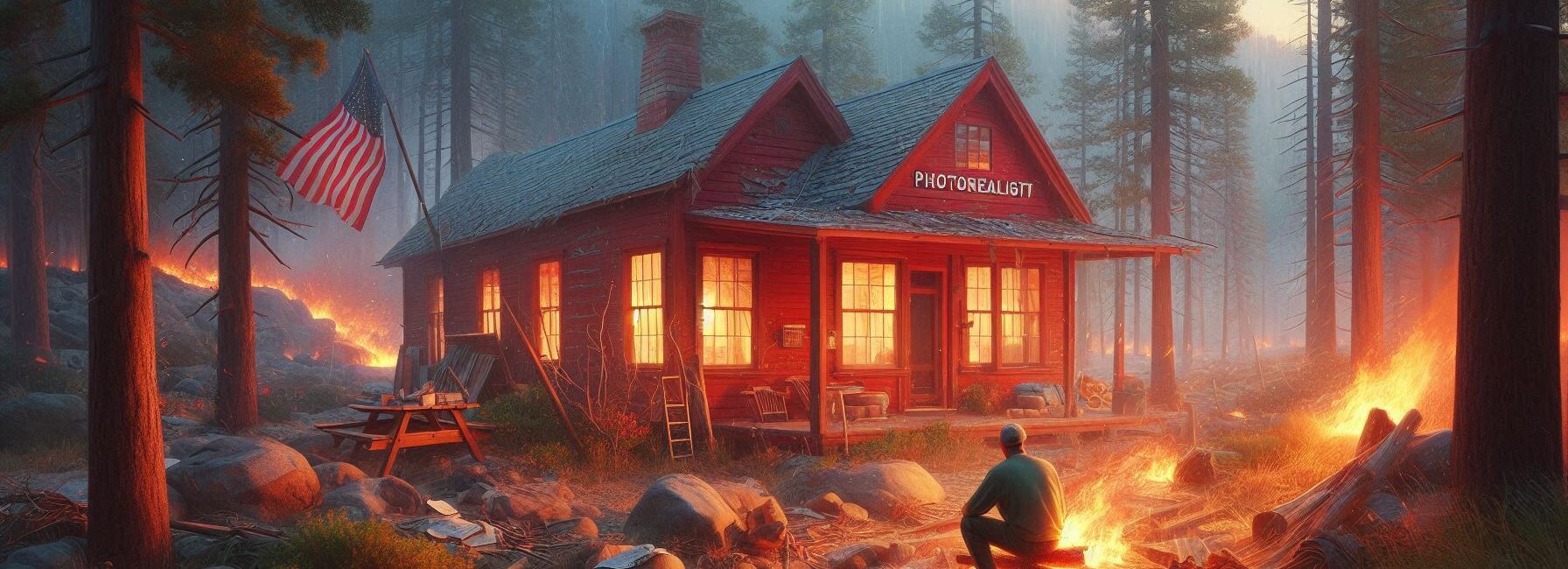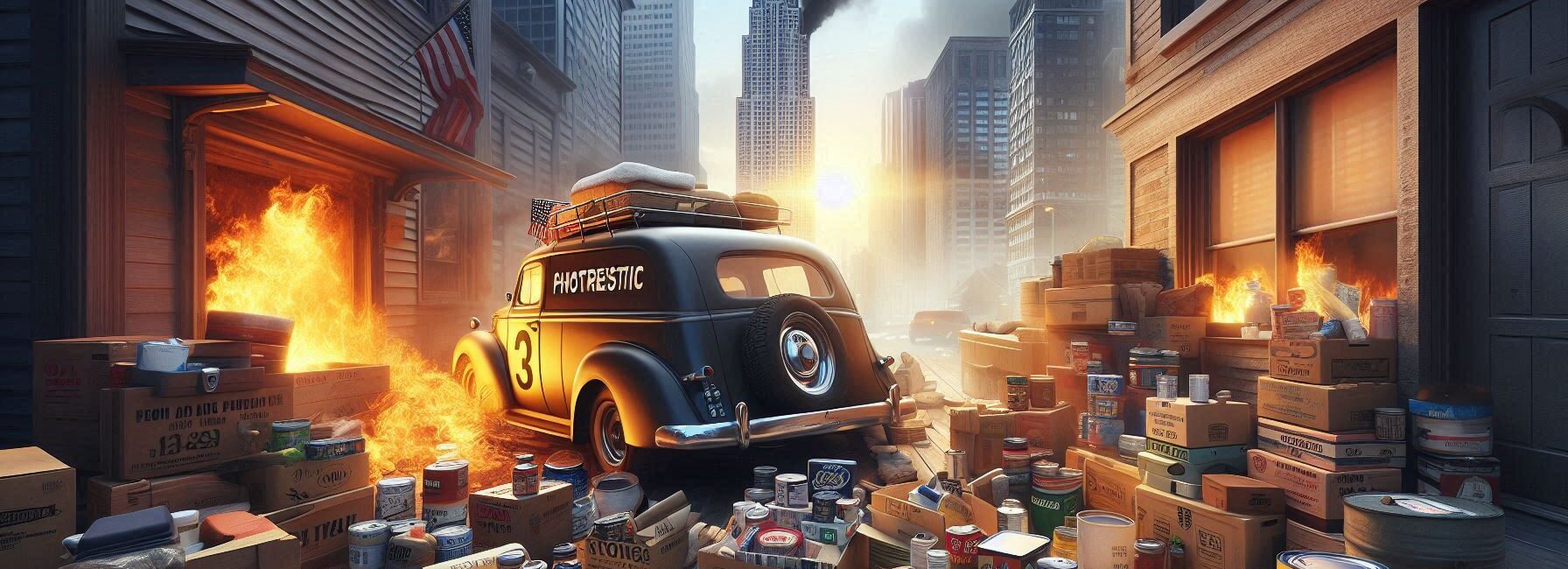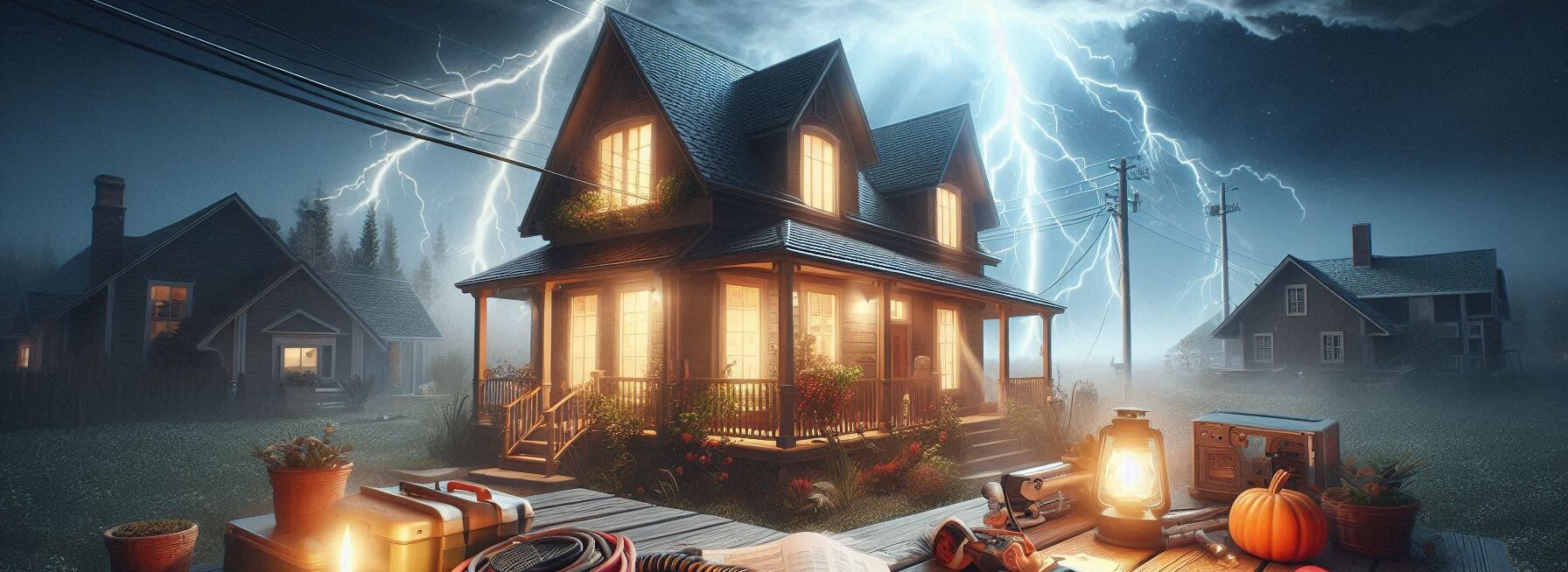Please Note: This post may contain affiliate links. If you click one of them, we may receive a commission at no extra cost to you. As an Amazon Associate, I earn from qualifying purchases.
Last Updated on November 2, 2025 by Kevin Collier
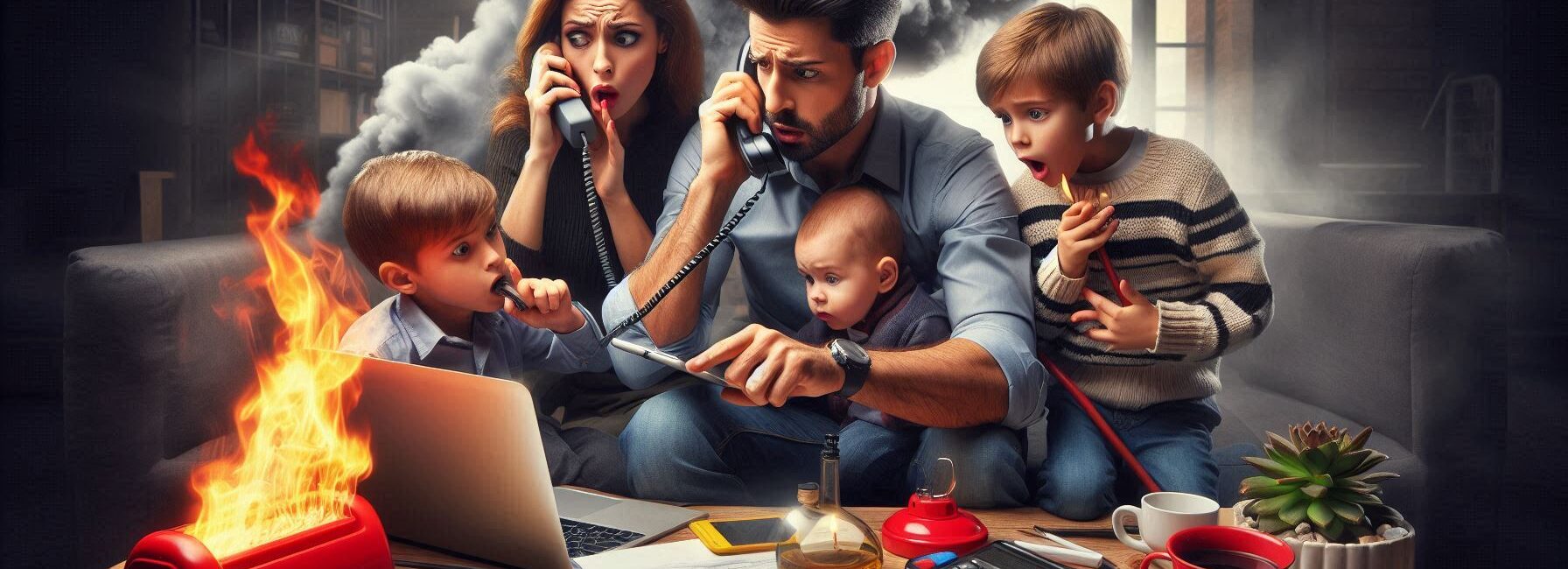
Top Takeaways and Key Concepts
- Brainstorm likely emergencies and discuss scenarios with your family.
- Establish multiple communication methods: phones, walkie-talkies, and designated meeting points.
- Create and share an emergency contact list with key family and friends.
- Conduct regular drills to practice roles and reinforce the plan.
- Review and update your plan yearly or after major life changes.
So, let’s be real. When something goes wrong, you don’t want your family running all over like balloons in a storm. Whether it’s a huge storm, a power outage, or just figuring out who forgot the milk on the counter, a good emergency plan makes everything smoother. No one wants to be panicking like crazy. Trust me.
Think about it—having a plan is like a secret weapon. You can say, “Hey, if something happens, we’ll meet at the big tree in the park.” Easy, right? This way, even if you're feeling a bit stressed, you’ll know where to go. Way better than searching everywhere and worrying.
And hey, while you're at it, you can chat about something other than Aunt Martha’s fruitcake disaster. Just imagine. “Did you hear about the plan? Awesome, right?”
Grab your coffee or tea, whatever gets you going. Let’s brainstorm. Write down important numbers. Make sure everyone knows who to call if things get crazy. Kids can have a special buddy they check in with, too. It makes them feel important.
Think about your home. Where will you go if the power goes out? Maybe it’s the neighbor’s house that has a generator. Or maybe it’s just the living room with extra blankets and snacks. Cozy times, right?
Give everyone a job, too. Maybe one person checks the flashlights, and another grabs snacks. Everyone can help, and it makes you all feel like a team.
So, take a few minutes. Talk it over with your family. It'll feel good knowing you’re all set. Staying connected, especially in tough times, makes everything less scary. You’ve got this!
Identifying Your Communication Needs: What Do You Really Need?
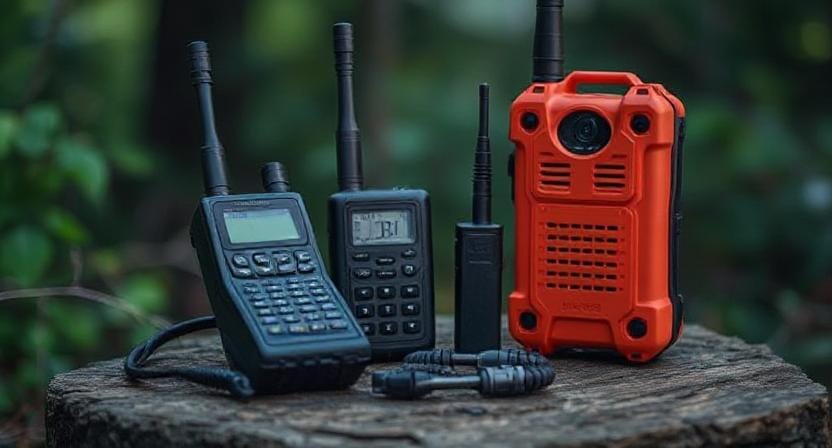
*** Shop for Survival Gear - Tools - Kits ***
Survival Gear - Bags and Backpacks - Knives - Boots/Footwear - Communication
Outdoor Cooking - Gloves - Hydration - Dry Boxes - Water Filtration Systems
Tents - Sleeping Bags - First Aid Kits - Multi-Tools - Flashlights - Fire Starters
Navigation - Survival Food - Night Vision - Headlamps - Stun Guns - Binoculars
First off, let's take a moment to think about what kind of emergencies might actually happen. Do we need a plan for every possible scenario? Probably not.
Unless you're planning on being chased by aliens while camping in the woods—which would make for quite an interesting weekend—but let's stick with more realistic situations like hurricanes or power outages.
Start by brainstorming potential emergencies that could affect your area. Living near water? Flooding could be an issue! In tornado alley? Better have those helmets ready! You see where I'm going here.
Once you've identified these scenarios, consider how you'll communicate during each one. Will cell towers still work if the world goes haywire? Or should we invest in walkie-talkies and start practicing our secret codes?
Honestly, I once tried using smoke signals during a camping trip—turns out my fire-building skills are about as good as my ability to do calculus in my head. So maybe stick with text messages or apps that work offline!
Establishing Contact Methods: The More the Merrier
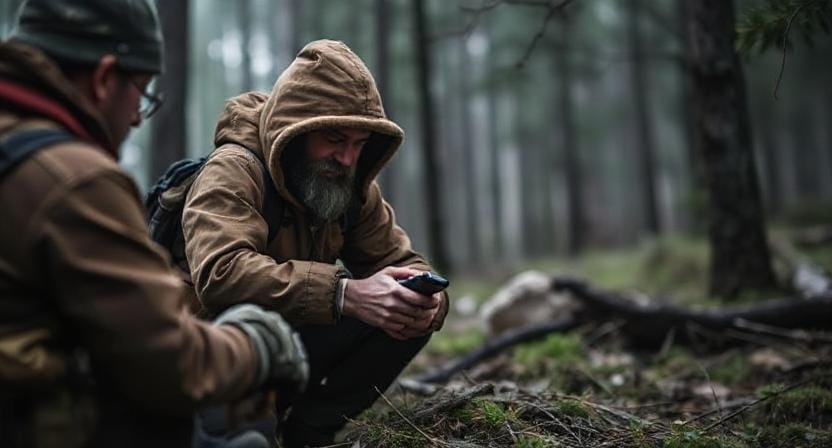
Now that we've figured out what we’re preparing for, let’s discuss how everyone will stay in touch when things go sideways. It’s time to establish multiple ways to communicate because relying solely on one method is like trusting Uncle Bob not to burn the burgers at your next BBQ—it’s risky business!
Consider setting up group chats on messaging apps (assuming there's cell service). If technology fails us all and we revert back to caveman days, designate meeting points where everyone can gather safely. Think of it as your “family reunion spot” minus the awkward small talk with distant relatives.
By the way, don’t forget about good old-fashioned paper! Write down important phone numbers—yes, even Grandma's landline—because when phones die or get lost (and they always do), having this information handy is priceless.
And speaking of contact methods… what happens if someone can't reach anyone else? Designate an out-of-town friend or relative as a point of contact so everyone has someone they can check in with during crises. Trust me; it's much easier than trying to track down Cousin Eddie after he decided he needed some “alone time” during an emergency.
Creating an Emergency Contact List: Who You Gonna Call?
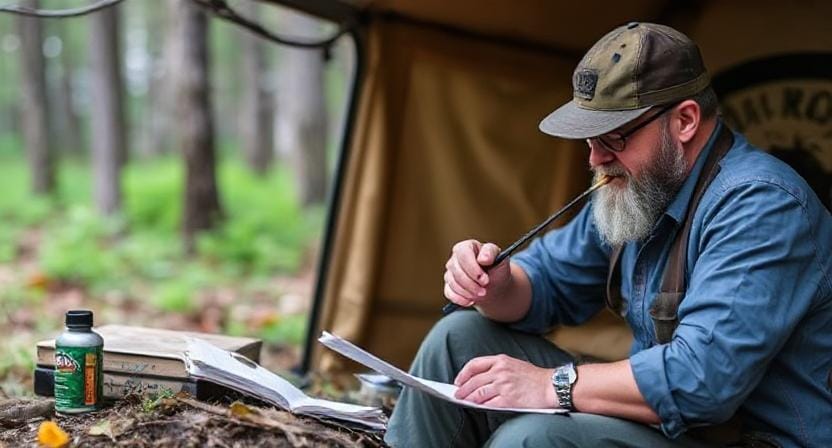
This is where things get serious—or at least semi-serious enough that no one will fall asleep at dinner! An emergency contact list is crucial because when panic sets in (like when I realize I've forgotten my wallet at home), people often forget who they should call first.
Gather essential information for each family member: names, phone numbers, email addresses—maybe even their favorite pizza toppings for motivation later on! Include nearby friends’ and neighbors’ contacts too; after all, they're likely experiencing similar chaos and may need assistance just as much as you do.
Interestingly enough, creating this list also opens up conversations about who really deserves priority treatment when calling around 2 AM—sorry Aunt Betty; I know you're sweet but I’m calling Dad first!
Once you've compiled your list (and double-checked it twice), print copies for everyone involved. Keep them in wallets or backpacks—and trust me; having it saved digitally doesn't count if everyone's phones are dead!
Conducting Regular Drills: Practice Makes Perfect

Okay folks, now comes the fun part: drills! No need to break into song here (unless you want), but practicing your communication plan can help ensure that everyone knows exactly what to do when push comes to shove—or rather when nature decides she needs some attention.
Set aside time every few months for family drills where everyone practices their roles according to your communication plan. This doesn’t mean running around screaming “The sky is falling!” but rather simulating different scenarios based on actual emergencies you've discussed earlier.
I remember doing this once with my kids; we pretended there was a monster under their beds (which turned out just be my old sneakers). They took off running toward our designated safe zone faster than I’ve ever seen them move before—I think they were motivated by sheer terror!
By practicing regularly—not just once every decade—you’ll build confidence among family members regarding handling emergencies together effectively without turning into frantic squirrels searching for acorns.
Updating Your Plan: Because Life Happens
Last but certainly not least—isn't that what they say?—you must keep updating your emergency communication plan periodically because life changes faster than my Wi-Fi connection drops during movie night!
Every year or so (or whenever significant changes occur) revisit your plan together as a family unit and assess whether any updates are necessary due changes like new jobs/schools/moves/people joining/leaving/etc.—it’s like spring cleaning but less dusty!
Take note if any new technologies come onto market too; perhaps there are better apps available now compared previously used ones which might enhance overall effectiveness while keeping spirits high through shared laughter instead of dread over impending doom!
You know, when things get a bit wild, having a family plan is like having an invisible superhero cape. No pop quiz, promise! Just some good info to keep everyone calm and together.
Life happens, right? Maybe the power goes out during a storm or, oh no, the neighbors' dog gets loose. A simple plan can make all the difference. It helps everyone feel safe and assured, even when the outside world gets a bit crazy.
Imagine everyone knowing what to do. It’s like a secret club of calm. You might have a spot to meet up, and that little idea can ease all those nervous jitters.
Staying connected makes a huge difference. It’s reassuring to know that even when things get messy, you can find your family. And who doesn’t want a little peace of mind in all that chaos?
Think about the things that are most important. It's not enough to merely have a plan; you also need to know that you're both ready for anything. You have a team, and that makes you strong.
So, relax. Talk about these topic with your family during dinner or on the couch. You are all in this together, and having a strategy will make you feel better.
Frequently Asked Questions
Why should families discuss likely emergencies in advance?
Discussing possible emergencies makes everyone more aware and less panicked when a real situation occurs.
Should families have more than one way to communicate?
Yes, using phones, walkie-talkies, and designated meeting points increases the chance of staying connected during disruptions.
Why is an emergency contact list important?
It ensures every family member has the same essential phone numbers and can reach help even if devices die or get lost.
How often should families practice their communication plan?
Regular drills help everyone remember roles and reduce confusion when fast action is needed.
Should the plan include meeting spots?
Yes, establishing safe meeting points gives everyone a known location to gather if communication fails.
When should families update the plan?
Update at least once a year or any time there are major life changes like moving or changing schools.
Can kids have tasks in the emergency plan?
Yes, giving age-appropriate responsibilities builds confidence and helps children stay calm during stressful events.
Suggested External Resources:
Family Emergency Preparedness Guide
https://www.ready.gov/sites/default/files/2020-03/family-emergency-preparedness-guide.pdf
How To Prepare a Family Emergency Plan
https://www.redcross.org/get-help/how-to-prepare-for-emergencies/make-a-family-emergency-plan.html
Emergency Communication Plans
https://www.fema.gov/emergency-management/national-preparedness/communication-plans

Kevin Collier is a seasoned survivalist and expert in prepping and homesteading, contributing to WiseSurvive.com. With a deep-rooted passion for self-sufficiency and outdoor survival skills, Kevin shares practical advice, strategies, and resources to help individuals prepare for any challenge. His informative articles cover a range of topics, from essential survival techniques to sustainable living practices, empowering readers to thrive in any situation. Whether you're a novice or a seasoned prepper, Kevin's insights will inspire you to take charge of your readiness and build resilience for the future.

